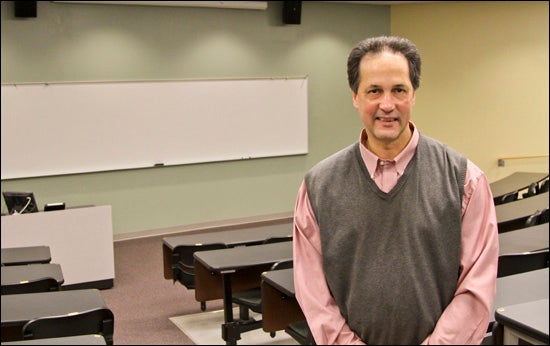Female student grades suffer more than males from poor attendance
Female college students who cut class score lower on exams than their male peers, according to a study conducted at East Carolina University.
ECU College of Health and Human Performance professor Dr. Ron Cortright collaborated on the research with ECU teaching instructor Julie Cox and Wayne State University University colleagues Drs. Stephen DiCarlo and Heidi Lujan. Their work was published in the December issue of the peer-reviewed journal, Advances in Physiology Education, published by the American Physiology Society.
The researchers tested the conventional wisdom that grades relate to class attendance, that students who attend class more frequently obtain better grades and that class attendance in itself contributes to enhanced learning. The study also examined the influence of students’ gender on the relationship.
The study compared two exercise physiology classes with 20 female and 31 male undergraduates, anonymously recording students’ class attendance and its effect on exam scores.
“It does appear that females may be more susceptible than males to experiencing a lower performance on tests by virtue of poor attendance,” Cortright said.
Each absence was associated with a greater decrease in points for female students, 21.6 points compared with male students, 15.0 points. The study was small and additional studies should be done to confirm these results, Cortright said.
He said the study showed that students do not learn effectively by reviewing PowerPoint slides provided before lectures. Interactions with the lecturer and classmates are important, he said. That interaction requires class attendance as well as motivated students, teachers and class participation.
Read the article, “Does sex (female versus male) influence the impact of class attendance on examination performance?” at http://www.ncbi.nlm.nih.gov/pubmed/22139780.
###

ECU teaching instructor Julie Cox enters data on the attendance study.
